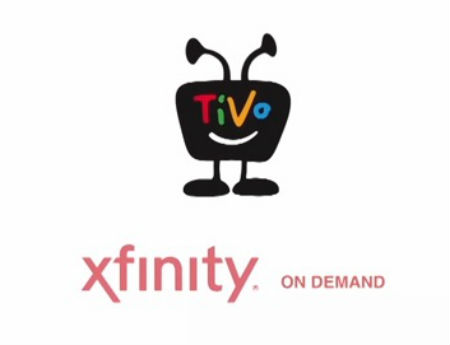Comcast, TiVo Working On Non-CableCARD Approach
The smarter way to stay on top of the multichannel video marketplace. Sign up below.
You are now subscribed
Your newsletter sign-up was successful

TiVo and Comcast have agreed to collaborate on a two-way, non-CableCARD security platform that would enable TiVo boxes bought at retail to access Comcast’s full lineup of linear programming as well as the MSO’s video-on-demand service.
Following the recent completion of an integration, Comcast currently supports both live TV and VOD services on retail-purchased TiVo Premiere and Roamio devices in all of the MSO’s markets, so long as those devices are paired with CableCARD modules.
TiVo and Comcast, which disclosed the agreement in an FCC filing dated July 14, didn’t go into explicit technical detail on how the non-CableCARD approach would work, though it's possibile that the intended approach would use a downloadable version of video security. But they did note that Comcast will make the solution available to other cable operators “on commercially reasonable terms.”
Under the agreement, Comcast customers that wish to use TiVo retail devices to access Comcast’s full suite of cable-delivered services will continue to have that option at a future date using a non-CableCARD solution that will be supported in both TiVo retail and Comcast-supplied devices, they added, noting that the CableCARD-free approach “can also be supported in other compatible customer-owned devices.”
“This agreement demonstrates that the marketplace is working to provide innovative device solutions for consumers to access MVPD services and thereby advance the Commission’s navigation device goals,” Comcast and TiVo said in the filing. “Comcast is already delivering IP cable services to smartphones, tablets, and other customer-owned devices in the home in certain Comcast markets.”
In the same document, Comcast said it had likewise committed to continue providing and supporting CableCARDs in retail device notwithstanding the D.C. Circuit’s EchoStar decision last year that vacated certain CableCARD rules. That decision was not central to CableCARDs, but, according to TiVo, it did raise questions about cable’s obligations to support consumer access to the removable security modules.
“Comcast will ensure that all CableCARD-enabled devices will continue to have access to all linear channels in all Comcast markets,” they added.
The smarter way to stay on top of the multichannel video marketplace. Sign up below.
Save for FCC-supplied waivers for devices such as one-way digital transport adapters (DTAs), U.S. operators are subject to an FCC ban on set-tops with integrated security that took effect in July 2007 and was aimed at cultivating a retail market for cable-ready set-tops, TVs and other video devices. That ban has failed to achieve the intended goal. According to a recent report from the National Cable & Telecommunications Association, the nation’s top nine incumbent cable operators have deployed more than 47 million MSO-supplied set-tops with CableCARDs since the ban took effect, versus only 616,000 CableCARDs for use in retail devices.
This new agreement between Comcast and TiVo comes amid repeated calls by the NCTA for the FCC to end the set-top ban. Last fall, Reps. Robert Latta (R-Ohio) and Gene Green (D-TX) introduced legislation that aims to “remove the unnecessary and costly” set-top security integration ban, putting forth an FCC estimate that the mandate has cost cable operators and consumers more than $1 billion.
That follows a court decision in which EchoStar won its challenge to FCC rules on the ability to record TV programming. The issue was not CableCARDS, but it raised questions about cable obligations to support consumer access to the cards, according to Tivo, which it wants the FCC to clear up since those CableCARDS also allow access to TiVo recording devices.
Additionally, a draft provision in the Satellite Television Extension and Localism Act (STELA) seeks to eliminate the FCC’s integration ban, though the current draft would retain the FCC’s power to reinstate the ban on any successor to the CableCARD regime.
Meanwhile, the AllVid Technology Alliance has urged the FCC to pursue new rules that bring put forth a CableCARD successor that could be applied to all MVPDs, and not just cable operators. The cable industry has argued that market forces, not another government mandate, should determine the post-CableCARD future.
